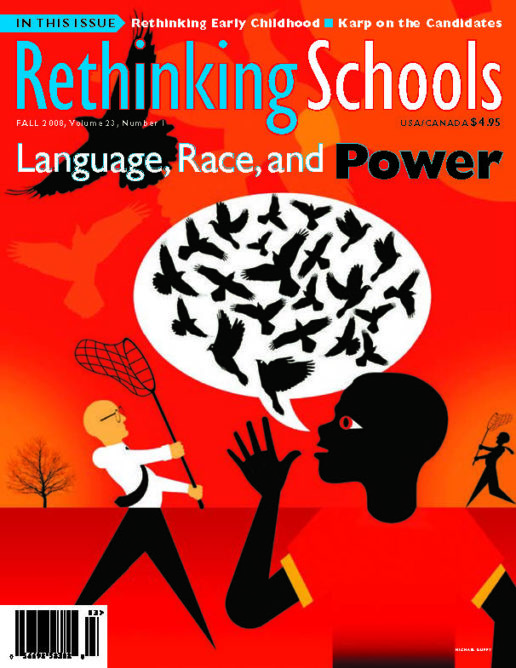Preview of Article:
More Than a Statistic
Reflections on the black side of school discipline
Illustrator: Richard Downs
“In your silence, you have become an accessory to murder!”
In his role as Dr. Vernon Johns, a Civil Rights leader, actor James Earl Jones vehemently indicts a complacent congregation that is too busy assimilating in white society to protest police brutality in the Southern 1950s. In my silence, I, too, have become an accessory — not to murder, though the long-term effects can be just as devastating to a community.
Xavier (a pseudonym) is not the first black boy whom I silently watched being treated unjustly while trying to survive in school under the weight of being black and poor and improperly raised within a dysfunctional family. A 23-year veteran educator of the public school system, I have observed innumerable incidents with countless Xaviers that contribute to the disproportionate rate at which black children are suspended.
These black children are more real to me than the alarming statistics that declare African American children are two times more likely to be expelled than white children. Xavier is the face behind these statistics. One unseasonably warm October morning, instead of lining up with his class to prepare for entry into the school building, Xavier lingers in the wrong line while chatting and laughing with friends. When approached by an administrator, Xavier responds, “My mistake,” and begins to walk to his appropriate line. The administrator directs Xavier (along with two other boys) to go to the main office where he must sign a statement that he intentionally — not mistakenly — stood in the wrong line.

